TABLE OF CONTENTS
There are so many laptops on the market nowadays that, frankly, keeping track of what’s new and worth purchasing has become ever more challenging.
There’s simply too much of everything screaming at us, both on the shelves of our local IT shops and the seemingly endless list of options on websites like Best Buy, Amazon, NewEgg, and so on.
Two specific lines of business-oriented laptops still stand out, though, and it’s for a very good reason: ThinkPad and XPS laptops are still amongst the most sought-after in the Windows realm, and it’s been like that for years.
They’re the ones most folks tend to notice almost immediately, albeit for slightly different reasons.
Lenovo’s ThinkPad laptops are geared more towards the consummate business professionals — they’re sleek and beautiful but also somewhat antique and retro. Timeless would perhaps be the aptest description.
They don’t gravitate towards contemporary design or transient trends and fads: they’re built to last and to get the job done — not impress someone at your local coffee shop.
Dell’s XPS line, on the other hand, offers an astoundingly beautiful blend of… everything, really. They’re for business professionals but also creatives, too.
They’re amongst the most jaw-droppingly attractive laptops money can buy, with their bafflingly slim bezels, carbon-fiber palm rests, immaculate machining, and displays so bright they could burn your retinas.
They’re unforgettable in every possible sense of the word and are most often compared to Apple’s MacBooks for a very good reason.
As such, they, too, are amongst the very best Windows laptops on the market.
Answering the opening question, therefore (the ThinkPad vs. XPS one), feels like an impossible endeavor. They’re similar enough to be compared and yet wholly different in many key areas.
Let’s take a deeper dive into the pros and cons of each and, in doing so, help you make a more informed purchasing decision!
Lenovo ThinkPad — What Makes Them So Great?
Whatever they might lack in aesthetics, ThinkPads more than make up for in sheer reliability and toughness.
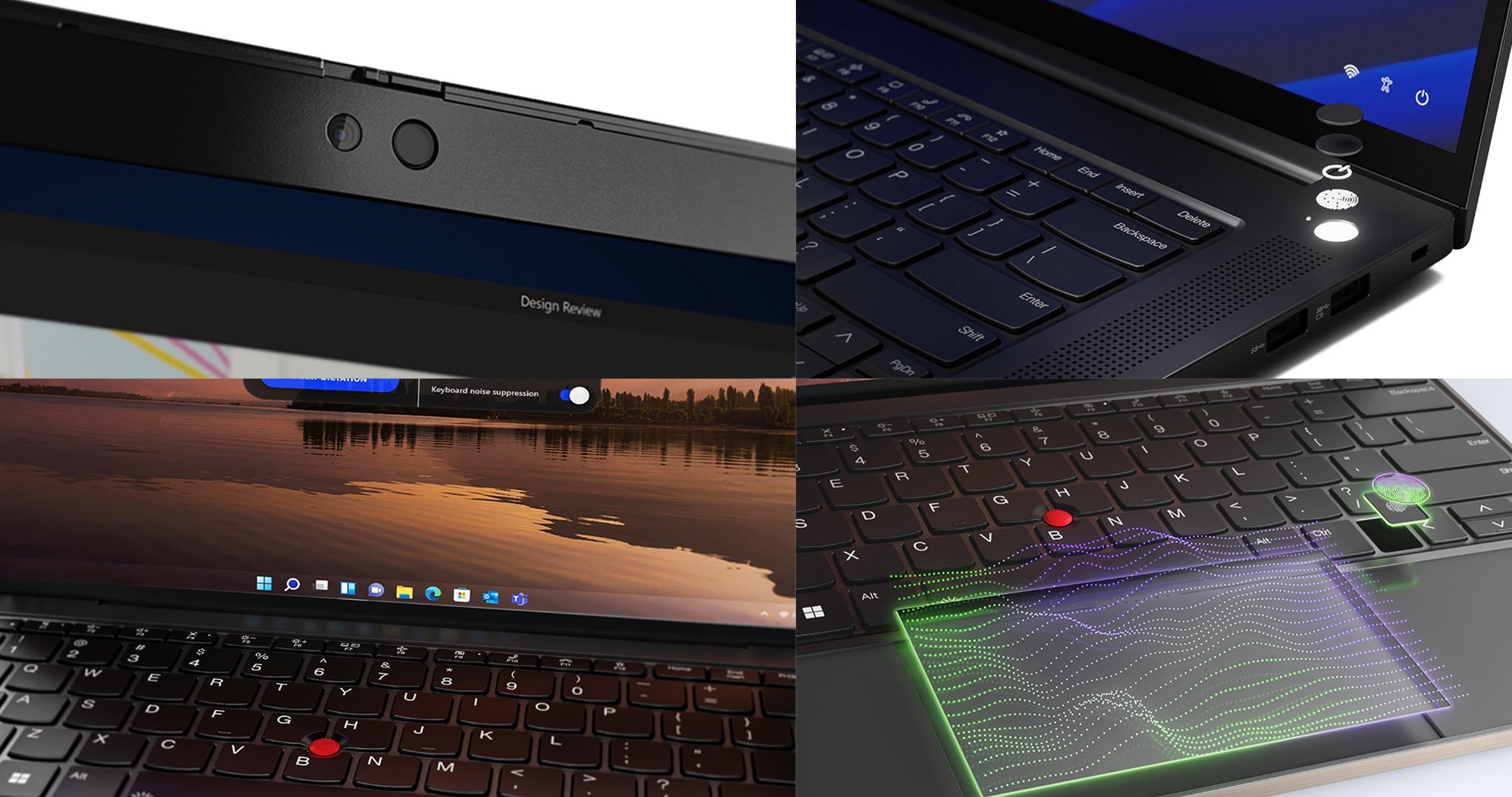
Image Credit: Lenovo
- Build quality. ThinkPad laptops are built to last. That’s the one thing they’re most known for (along with their iconic color scheme and slightly polarizing trackpoint). You buy a Lenovo ThinkPad, and, odds are, it’ll last you for many a year.
Case in point: most ThinkPad models are extensively tested against twelve MIL-STD 810G methods along with a whopping twenty procedures (shock, vibration, pressure, radiation, temperature, humidity, sand, dust, etc.), all with a singular goal in mind: to create a laptop that’ll stand the wear and tear of everyday life.
- “Legacy” I/O. ThinkPad laptops still come with a vast array of ports, unlike most of their competitors. They come equipped with USB-C, too, but not at the expense of USB-A, HDMI, RJ45 (Ethernet), smart card readers, and so on!

Source: Lenovo
This varies from one model to the next, but you get the point: all but the thinnest ThinkPads have a plethora of I/O.
Heck, some models even have SD card readers, which, frankly, is quite a surprise — they’re not “creator-focused” machines at all, and yet they have more ports than you can shake a stick at!
The point of having a ThinkPad is that you’re never forced into bringing a myriad of different dongles and cables while you’re out and about.
- Top-notch security. ThinkPad laptops are renowned for their many security features and processors that are tailor-made for enterprise/business users — Intel vPro and AMD Ryzen PRO, to be more specific.
- The keyboard. ThinkPad laptops offer the absolute best typing experience — and it’s not even up for debate. The amount of key travel, the tactility, the sound profile, all of it blends together in a truly spectacular way. If you’re a serious typist and need to write out thousands upon thousands of words while on the go, getting a ThinkPad should definitely be a top priority.
- They’re utilitarian. This particular virtue may or may not be of any importance to you personally, but it is important to a pretty large number of people. ThinkPad laptops are conceived as tools for the everyday business professional — they’re precise and durable, devoid of any superficial bells and whistles that might attract a younger crowd. And in today’s hyper-advertized, “in-your-face” kind of world, that’s a rarity (hence their ever-lasting allure).
Lenovo ThinkPad — Biggest Drawbacks
ThinkPad laptops aren’t perfect; then again, most of their cons and drawbacks can pretty much be ascribed to personal preference rather than any concrete, tangible flaw or problem.
- Visually outdated. ThinkPad laptops have pretty much retained the same design language since day one. Improvements have been made, in all fairness, but they’re mostly nuanced in nature: slimmer bezels, higher resolution displays, varying screen aspect ratios, and so on. ThinkPads are still easy to spot from a mile away — for better or worse.
- Not that powerful. ThinkPads aren’t meant to be used for the most demanding tasks and workloads one can imagine. There are a few incredibly powerful models, sure, but if you’re after a workstation laptop — a spec’d out behemoth with incredible cooling and more features than you can count — then you’d be wise to look elsewhere. ThinkPads (the most powerful ones) could still get the job done, but they might not be the best option for the asking price.
- An unimpressive price-to-performance ratio. ThinkPads aren’t cheap. As already mentioned, they’re geared towards business professionals and companies that often buy them by the dozen. Whether they’re worth their MSRPs depends solely on your individual needs and budget, but there are more affordable options out there that’ll perform about the same (if not even better). These alternatives don’t come with as many business- and security-oriented features as your run-of-the-mill ThinkPad, but they nonetheless provide a lot more “bang for your buck.”
Dell XPS — What Makes Them So Great?
There’s no other laptop in the Windows realm that can compete with Dell’s XPS line-up. They’re the most alluring, jaw-droppingly beautiful laptops you’ll ever lay your eyes on.
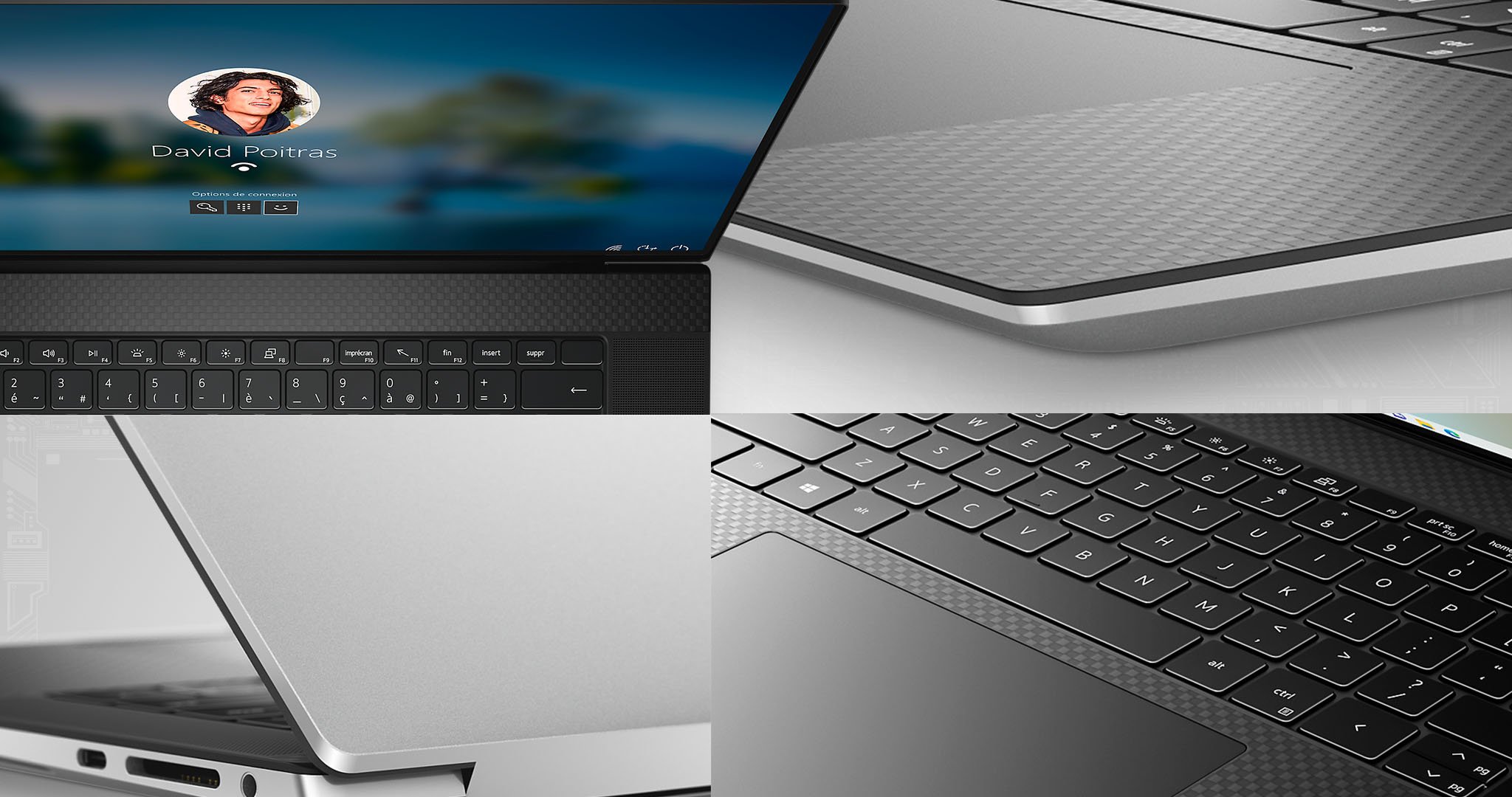
Image Credit: Dell
Impossibly thin bezels, best-in-class displays, great keyboards, top-notch craftsmanship, respectable internals, and an MSRP that’ll make your wallet weep.
They’re often obscenely expensive, which, frankly, shouldn’t come as much of a surprise: they’re amongst the most well-rounded Windows laptops on the market.
- Incredible build quality. XPS laptops are crafted from the most incredible materials, and they’re staggeringly beautiful, too. No matter which end you end up grabbing, you’ll feel their premium nature almost immediately.
- Jaw-dropping displays. Dell has, thankfully, decided to pair such immaculate craftsmanship with displays so beautiful you cannot help but start watering at the mouth. They’re high-res, color accurate, and bright enough to offer great legibility even in the most searing of daylight. As such, they’re amazing for any creative professional.

Image Credit: Unsplash
- “Hip and cool.” XPS laptops have a special kind of vibe. They’re premium, professional-looking, and yet still contemporary and slick enough to “attract a crowd.” They’re not as “gamery” as Razer Blades nor “pedestrian” as ThinkPads. Their sandwich design might not be as contemporary as it was back when it first showed up, but it still offers a wholly attractive blend of aesthetics and utility — aluminum on top and bottom and a mind-blowing display and carbon fiber “deck” on the inside. What more could you ask for?
- Very well-rounded. XPS laptops (much like their more expensive Precision brethren) are phenomenal for any but the most demanding workload. They’re great for content creation, content consumption, programming, software development, photo editing, and everything in between. Heck, certain SKUs can even deliver respectable frame rates in today’s most popular titles, too! That’s a pretty impressive mix, all things considered.
- Silent in most scenarios and workloads. The folks over at Dell know darn well that a good user experience is built around as low a noise profile as possible. You can’t really concentrate or create your magnum opus if the laptop you’re using sounds like a jet engine.

Image Credit: Dell
As with most other laptops, XPS ones, too, come with various different power profiles; unlike their competitors, however, they’re actually silent whenever you limit their power draw and operating frequency (i.e. turn on Quiet/Silent mode).
Dell XPS — Biggest Drawbacks
Beauty can, at times, be deceiving. XPS laptops might be some of the very best and most complete on the market, but they still come with their own unique faults and blemishes.
- Issues with quality control. Dell is a reputable brand. There’s no denying it. Still, an alarming number of users have reported a plethora of issues, some of which still haven’t been dealt with and ameliorated. This includes crackling speakers, weird touchpad quirks, bad drivers, and a bunch of other problems of varying complexity.
Now, no laptop is perfect, and these things can, by all means, occur with different manufacturers and models as well.
Then again, if you pay two or even three thousand dollars for a laptop — a “best-in-class” model, no less — you shouldn’t have to deal with these (often quite debilitating) quirks and issues. There’s really no other way to say it.
And Dell, by the looks of it, has had more technical “slip-ups” than one would expect.
- A bit too expensive. XPS laptops do not come cheap. In fact, there’s quite a sizable “XPS tax” applied on top which, depending on your budget, may or may not be a dealbreaker. You are getting a lot for your money, but whether it’s truly worth it or not is a question only you (and your wallet) can answer.
- Silence comes at a cost. There are two reasons why XPS laptops are so silent. The first one pertains to their specifically tuned fan curves. The second one, however, is perhaps a lot more important: their internals are fairly limited in regards to how much power they can draw. If you need the absolute best and most powerful laptop to get your work done, then anything bearing the XPS logo simply isn’t going to cut it. You’ll have to “step up” to a Precision or, conversely, go with a more powerful model from a different manufacturer like, say, ASUS.
ThinkPad vs. XPS — Which One Is Right For You?
Let’s distill it all down to just a few straightforward bullet points — a TL;DR, if you will:
Pick a ThinkPad If You Want:
- An “old school” aesthetic, one that is both rugged and timeless
- A straightforward laptop that is built to last and not impress someone at your local coffee shop
- A machine that can withstand the wear and tear of an “on-the-road” lifestyle
- Legacy I/O — most ThinkPads still come with a respectable number of ports
- A processor with enhanced security features (available only with select models)
- Best-in-class keyboards
Pick an XPS If You Want:
- Jaw-dropping design
- A truly amazing, bright, and color accurate display
- Phenomenal build quality
- A well-rounded laptop that’ll deliver very respectable performance in most workloads
FAQ
Let’s go over a few potential questions you might have regarding this particular topic:
Who Makes the Better Laptops: Lenovo or Dell?
Both companies have made many great products over the years and are, as a result, held in high esteem.
They’ve had their fair share of failures, too, so it’d be unfair of us to advocate for one over the other.
With that being said, Lenovo didn’t get nearly as much bad press for its quality control issues which may or may not be enough to “win you over.”
One could argue that those “little things” matter most whenever two companies are so evenly matched.
What’s Better: ThinkPad or XPS?
This, too, depends on your personal preference, overall needs, and what kind of user you really are. If you value aesthetics highly then the XPS will always be the better option.
Lenovo has released a few slick laptops like the Z13 and Z16 — geared more towards fashionable business-minded people — but they’re still a notch below the mouth-watering design of a Dell XPS.
Performance-wise they’re quite similar so you really ought to focus on things like pricing, availability, and device-specific features that’ll deliver the kind of experience you’re after.
ThinkPad vs. XPS for Creative Work?
Dell XPS laptops are, without a shadow of a doubt, the better option for creatives, be they content creators, photographers, video editors, or something else entirely.
They have the best screens — displays that are astonishingly bright and color accurate — along with (in some cases) NVIDIA RTX GPUs.
They have all one needs for any kind of creative endeavor.
ThinkPads, on the other hand, are designed and built for a different crowd.
Are ThinkPad and XPS Laptops Good for Gaming?
Not really. They’re built and tweaked and tuned to be as silent as possible whilst still providing ample horsepower — they’re not designed to chew through Cyberpunk 2077.
Most ThinkPad and XPS laptops come with integrated graphics. That’s… not particularly impressive (or sufficient).
To get some serious GPU horsepower you’d have to spring for a ThinkPad Extreme or a spec’d out XPS 15/17 with dedicated NVIDIA RTX graphics. But even those particular models won’t perform as well as similarly spec’d gaming laptops with the exact same internals.
In other words: just because they can run the latest and greatest titles doesn’t mean they should.
If gaming is your primary goal then it’d be much wiser to go with, say, a Legion laptop from Lenovo or an ROG one from ASUS. Or, well, an Alienware from Dell, if your budget can cover it!
If you’re only interested in an occasional foray into the gaming realm then a spec’d out XPS/ThinkPad Extreme will, by all means, get the job done.
Over to You
ThinkPad and XPS laptops are synonymous with prestige, precision, reliability, and top-notch craftsmanship.
Have you already picked a side and, if so, which one? Let us know in the comment section down below and, in case you need any help, head over to our forum and ask away!
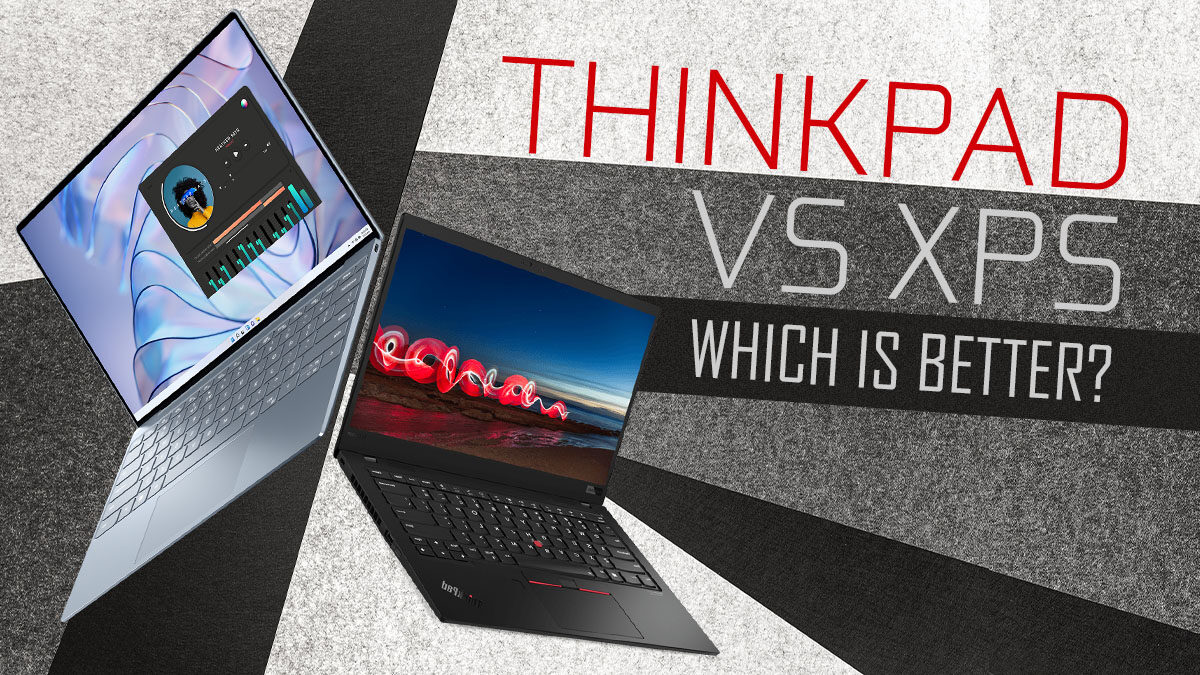
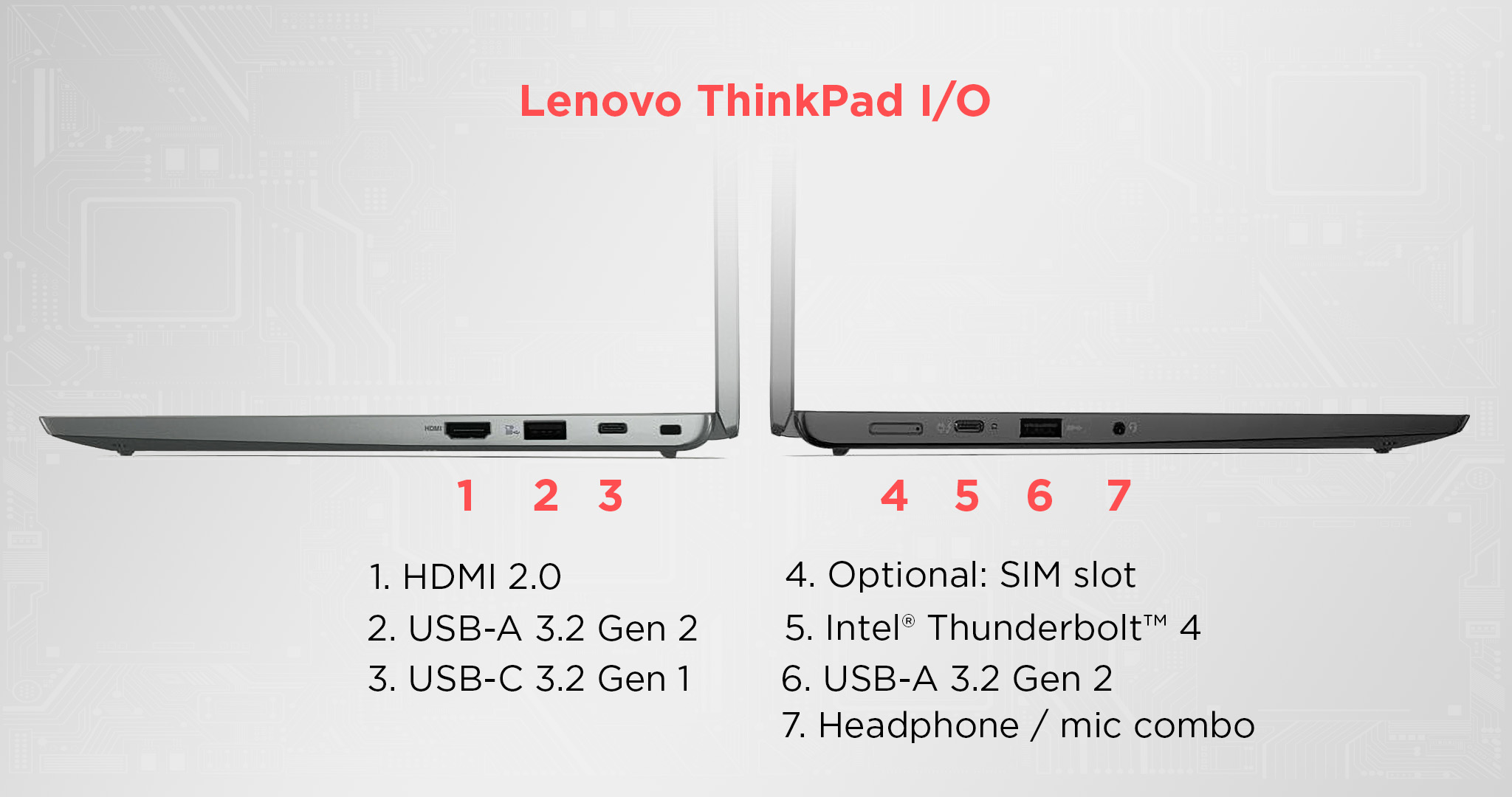
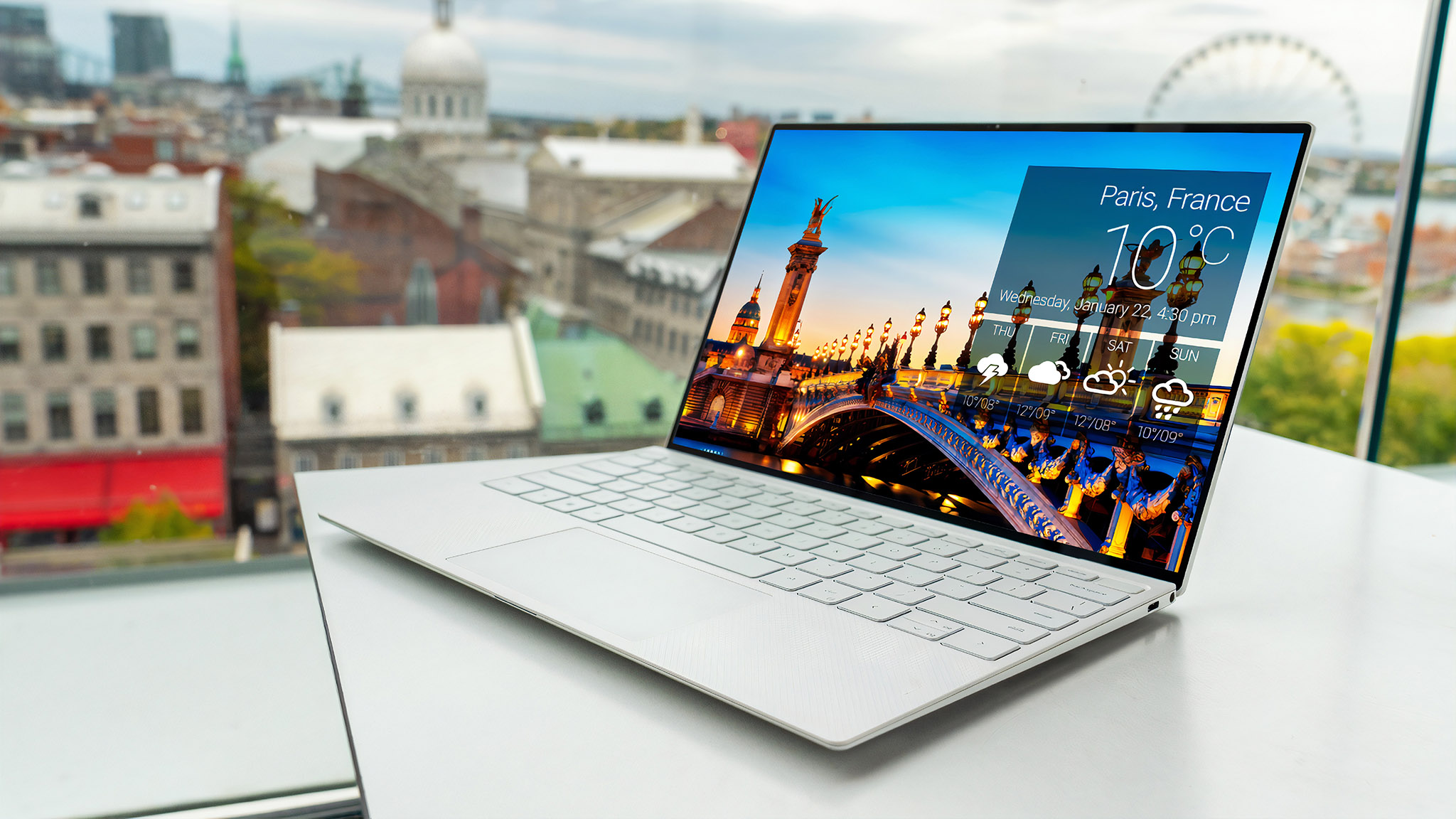
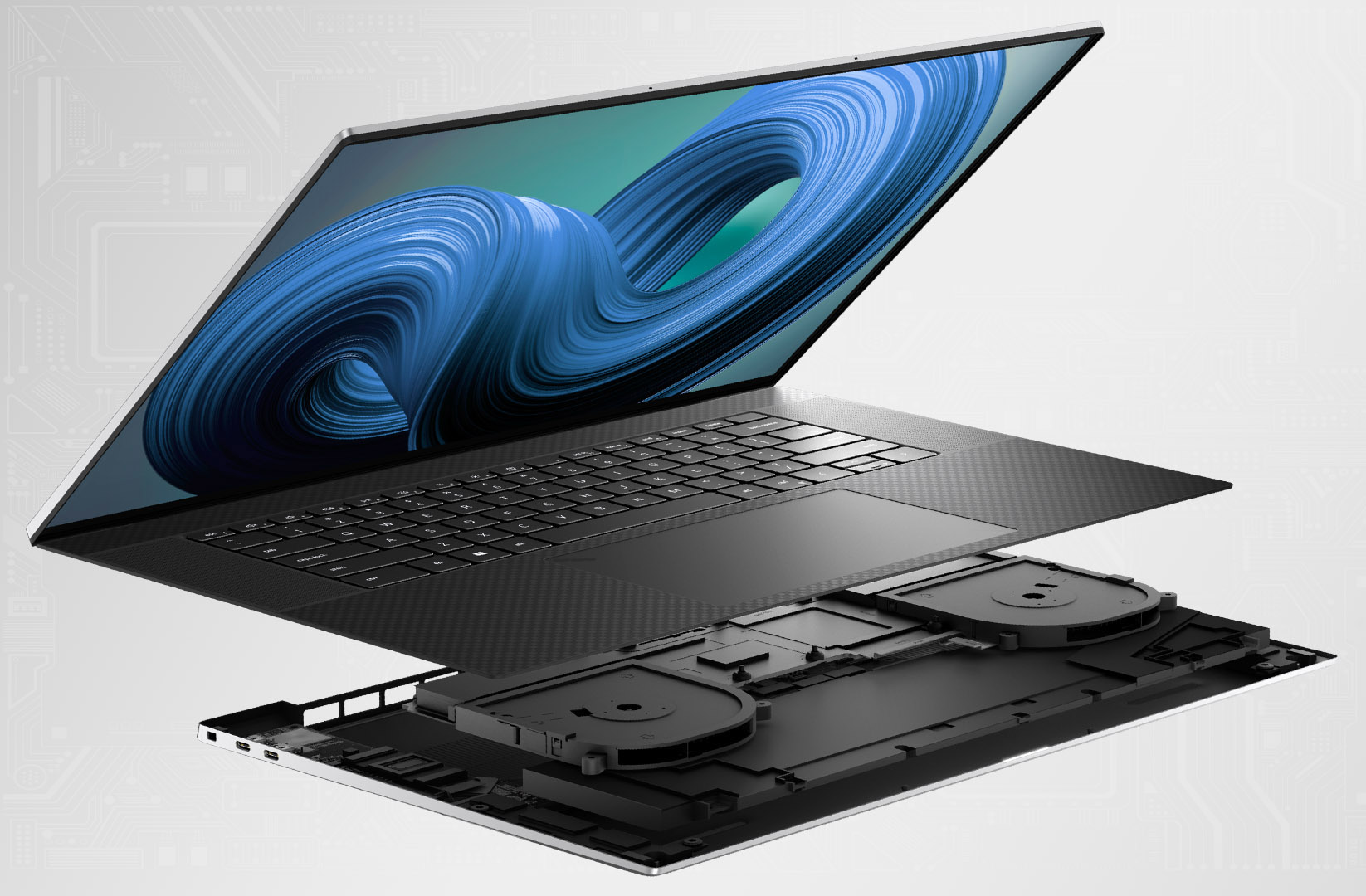
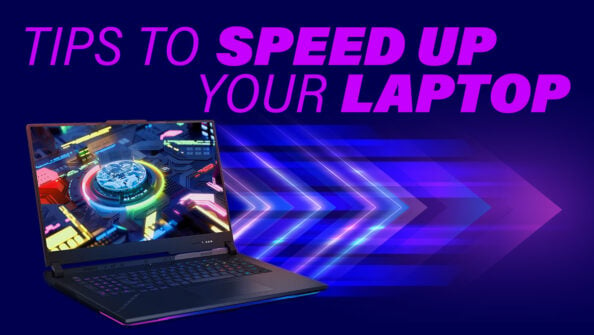
![Laptop Displays — Panel Types compared [IPS/OLED/TN] Laptop Displays — Panel Types compared [IPS/OLED/TN]](https://www.cgdirector.com/wp-content/uploads/media/2024/03/Laptop-Displays-—-Which-Panel-Technology-Should-You-Go-With-Twitter-594x335.jpg)
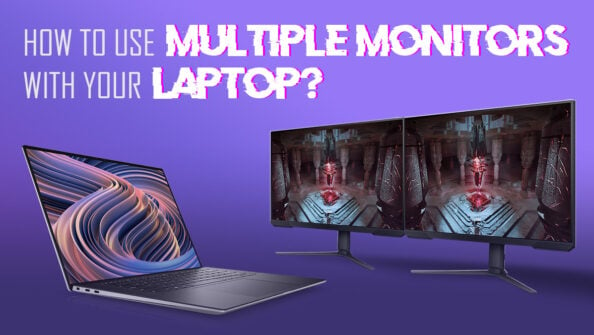
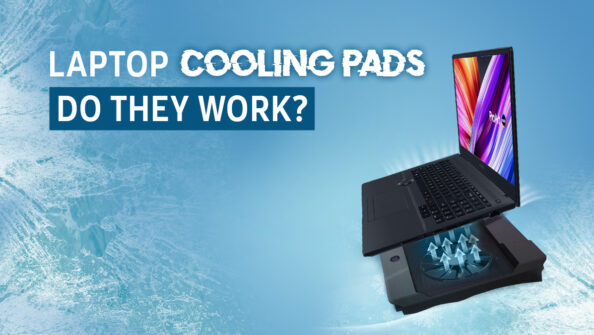

2 Comments
23 September, 2023
We purchased an XPS 15 (I9-12th generation, OLED screen) last December for our son who is a Junior in College studying Mechanical Engineering. We are now shopping for another laptop for our daughter who is a freshman studying mechanical engineering. Should we stick with the XPS (I9- 13th generation, OLED screen) $2838 or a ThinkPad P16 Intel (16”) Mobile Workstation on clearance for $1819.
25 September, 2023
Hi Steven! Can you please share the link to the ThinkPad model? It might just be the better pick, especially if we factor in the price.
Overall, it might not be as shiny or alluring as the XPS, but the difference in price is astronomical. There’s really no reason to pay extra for the 13th Gen Intel CPU as it’s not going to run at full throttle anyways given its thin chassis and limited thermal potential, so you might as well go with another 12th Gen model. You should also go with a Core i7 as the i9, again, isn’t going to run any better (maybe in a benchmark or two but that’s about it, in sustained workloads it’s going to throttle and very similarly (if not worse) than the i7).
This obviously varies from one model to another, but the XPS is definitely known for having such throttling issues.
Finally, give the Lenovo Slim Pro 9i or the ASUS Zenbook Pro 14 a look as well. They’re absolutely incredible devices and don’t cost nearly as much as the 2023 XPS. The former comes with a mini-LED display and the latter with an OLED. Both have Intel CPUs and NVIDIA RTX 40 series GPUs, but no upgradeable RAM.